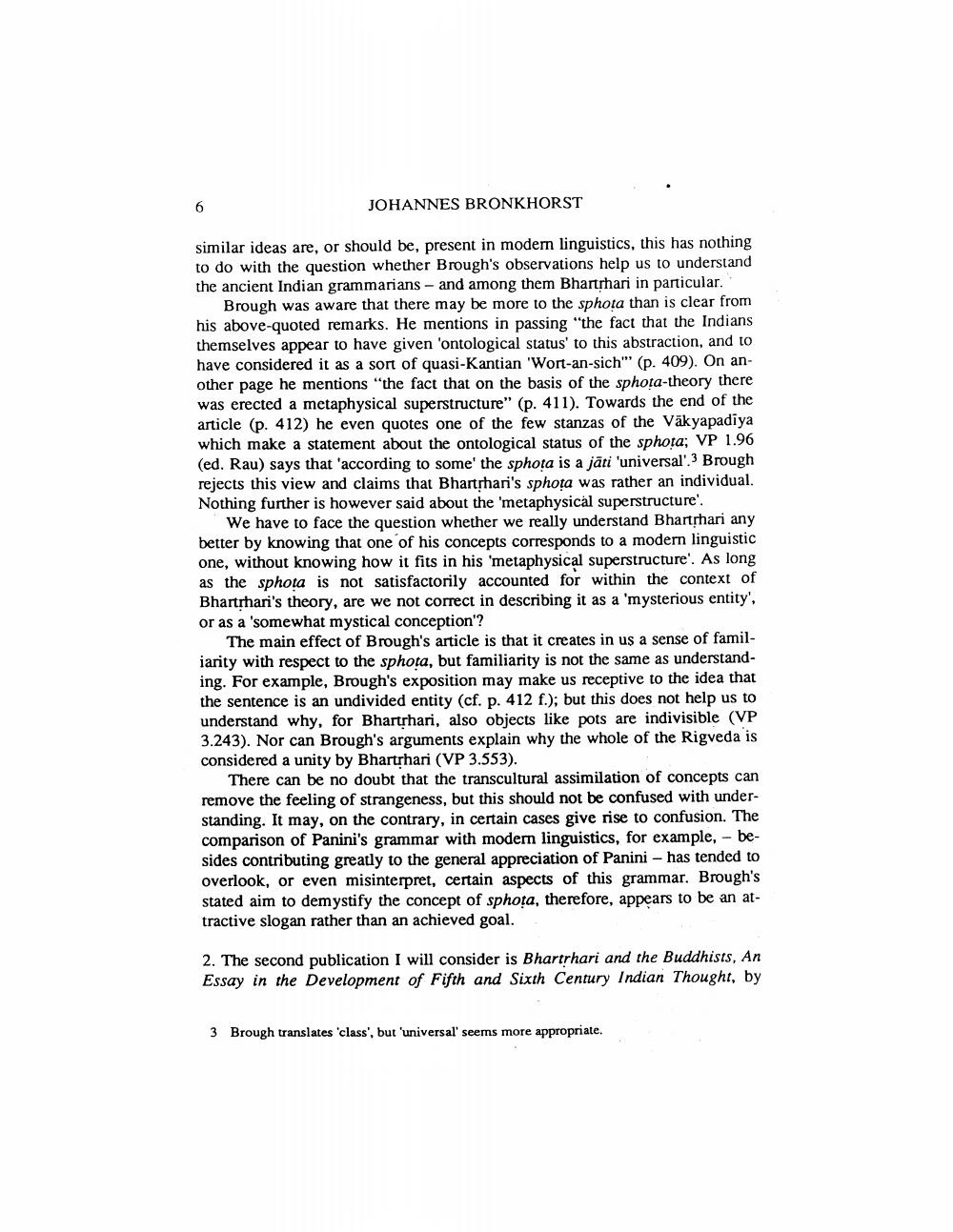Book Title: Studies On Bhartrhari 3 Author(s): Johannes Bronkhorst Publisher: Johannes Bronkhorst View full book textPage 2
________________ JOHANNES BRONKHORST similar ideas are, or should be, present in modern linguistics, this has nothing to do with the question whether Brough's observations help us to understand the ancient Indian grammarians - and among them Bhartrhari in particular. Brough was aware that there may be more to the sphota than is clear from his above-quoted remarks. He mentions in passing the fact that the Indians themselves appear to have given 'ontological status' to this abstraction, and to have considered it as a sort of quasi-Kantian 'Wort-an-sich'' (p. 409). On another page he mentions the fact that on the basis of the sphota-theory there was erected a metaphysical superstructure" (p. 411). Towards the end of the article (p. 412) he even quotes one of the few stanzas of the Väkyapadiya which make a statement about the ontological status of the sphota; VP 1.96 (ed. Rau) says that 'according to some' the sphota is a jāti 'universal'.? Brough rejects this view and claims that Bharthari's sphota was rather an individual. Nothing further is however said about the metaphysical superstructure'. We have to face the question whether we really understand Bharthari any better by knowing that one of his concepts corresponds to a modern linguistic one, without knowing how it fits in his 'metaphysical superstructure'. As long as the sphota is not satisfactorily accounted for within the context of Bharthari's theory, are we not correct in describing it as a 'mysterious entity' or as a 'somewhat mystical conception'? The main effect of Brough's article is that it creates in us a sense of familiarity with respect to the sphota, but familiarity is not the same as understanding. For example, Brough's exposition may make us receptive to the idea that the sentence is an undivided entity (cf. p. 412 f.); but this does not help us to understand why, for Bhartphari, also objects like pots are indivisible (VP 3.243). Nor can Brough's arguments explain why the whole of the Rigveda is considered a unity by Bhartrhari (VP 3.553). There can be no doubt that the transcultural assimilation of concepts can remove the feeling of strangeness, but this should not be confused with understanding. It may, on the contrary, in certain cases give rise to confusion. The comparison of Panini's grammar with modern linguistics, for example, - besides contributing greatly to the general appreciation of Panini - has tended to overlook, or even misinterpret, certain aspects of this grammar. Brough's stated aim to demystify the concept of sphota, therefore, appears to be an attractive slogan rather than an achieved goal. 2. The second publication I will consider is Bhartrhari and the Buddhists, An Essay in the Development of Fifth and Sixth Century Indian Thought, by 3 Brough translates 'class', but 'universal' seems more appropriate.Page Navigation
1 2 3 4 5 6 7 8 9 10 11 12 13 14
